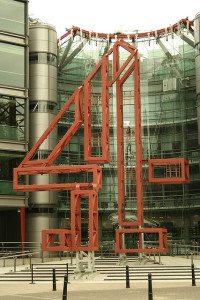Immigration Street: is it really that bad?
[dropcap]W[/dropcap]ith words like “immigration” being thrown around by politicians increasingly as the general elections draw near, it stands to reason that a documentary featuring the same word might come under heavy criticism. Concerns that it will further stigmatise an already heavily-stereotyped group of people have been leveled against the programme’s producers throughout and post-filming. But is Channel 4’s Immigration Street really that bad?
First of all, the title: is it TV’s equivalent of ‘clickbait’, designed to be provocative in order to capture attention and encourage discussion, or simply a title founded in poor taste with no concept of why it is offensive? Probably the latter. The executive producer of the programme, Kieran Smith, said, “I don’t think the use of the word ‘immigrant’ or ‘immigration’ is negative.” But, when wider political rhetoric often uses the term to stigmatise people who don’t appear to uphold ‘British values’ – whatever those are – one person’s opinion cannot excuse its use. Particularly when the residents of Derby Road, where the show is based, overwhelmingly held the opposite view of the word.
The title is especially dangerous in its generalisation when you consider that people featured in the documentary are residents whose families have lived in England for more than 40 years
If people born here, and who have citizenship, are still considered immigrants, what does it mean to be British at all? Are they really immigrants? In fact, the show risks reinventing the meaning of ‘immigrant’ in its representation of a Muslim convert. By all accounts, he is the epitome of ‘British’: he was born here; he’s white; he speaks English; yet he was still featured in a programme about immigration. Does following Islam suddenly make him an immigrant where he wasn’t before?

Photo: Flickr/Kaustav Bhattacharya
Despite this, and opening credits setting the tone of the programme as one rife with violence, the show started off quite well. The first section presents a number of different residents who speak their opinion freely, expressing their beliefs that immigrants contribute to the country more than they bring it down. This counter-representation of immigrants is a commendable challenge to popular rhetoric, particularly when they attempted to emphasise that each of the subjects were only representing their own experiences. At this point, I thought that perhaps my reservations and everything the title implied were misconstrued.
Alas, this optimism was not to last. While the documentary had professed to “give a unique insight into the reality of multiculturalism in Britain today” in its description on 4oD, it increasingly became about the making of the documentary and the struggles of the camera crew. The programme’s producers ignored mounting criticism and physical abuse of both their subjects and themselves, vilifying the residents of Derby Road who were opposed to their filming. In the documentary, they presented a meeting called by residents where the executive producer was asked to speak and promptly shouted down, implying the residents were too ignorant to understand the purpose of the programme. But surely if the producers wanted the community to understand what their purpose was, they should have spoken to them prior to filming?
Surely, with mounting violence and criticism, they should have abandoned the project altogether, rather than portraying an incomplete view of Derby Road?
Apparently not. Although the film crew focused on residents who wished to be filmed, they effectively endangered their lives and promptly left when the situation escalated, with no consideration of their subjects and the position they’d placed them in. And, by the time the documentary had ended, the only impression it had left was not one of the vibrant and ‘ethnically diverse’ and friendly community, but of a violent one.
In essence, Immigration Street is hardly a documentary about residents of Derby Road, but rather the struggles of Love Productions in creating one. It represents a small fraction of the community and portrays the rest as antagonistic and aggressive, with no sense of the producers’ own fallibility. It isn’t really about ‘immigrants’ at all, but those who are perceived to be so because of their skin colour or culture.

Comments (1)